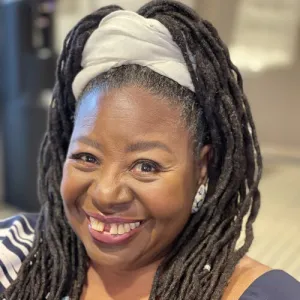Abortion as a Human Right: A Dialogue
Published February 19, 2024
How does viewing abortion through a human rights lens shift our analysis, understanding, and approach to this highly contested issue? What is the relationship between human rights and reproductive justice, and how can these approaches help bridge the diversity of viewpoints about abortion? How might embedding abortion in the human rights framework contribute to the global fight against authoritarianism and in defense of democracy more broadly?
These and other questions will be considered by a panel of national leaders in the reproductive justice, racial justice, and human rights movements at “Abortion as a Human Right: A Dialogue.” This event will take place on Thursday, March 28, 2024, at 6 p.m. in the Carroll Room, Julia McWilliams Child ’34 Campus Center, and will feature:
- Byllye Y. Avery, Founder, Black Women’s Health Imperative
- Amy Hagstrom Miller, Founder, Whole Woman’s Health abortion clinics
- Regina Davis Moss, Executive Director, In Our Own Voice: National Black Women’s Reproductive Justice Agenda
- Rosalind Petchesky ’64, Distinguished Professor Emerita, Hunter College, and Founder, International Reproductive Rights Research Action Group
- Loretta Ross, Associate Professor of the Study of Women & Gender, Smith College and Co-creator of Reproductive Justice Theory
Marlene Gerber Fried, Professor Emerita of Philosophy at Hampshire College and the Founder of Collective Power for Reproductive Justice, will moderate the panel.
This event is organized by fellows in the 2023–24 Kahn Institute long-term project, (Re)visioning Human Rights, Democracy and the Liberal Arts, which serves as an unbounded space for developing new research, teaching, and practice models at the intersection of liberal arts education, human rights, and the future of democracies.
Sponsored by the Smith College Kahn Institute for Liberal Arts, Smith College Special Collections, and the John D. and Catherine T. MacArthur Foundation. Free and open to the public. All viewpoints are welcome. Light refreshments will be available following the lecture.
For disability access information or accommodation requests, please call 413-585-2407. To request a sign language interpreter, email ods@smith.edu at least ten days before the event.
About the Panelists
About the Louise W. and Edmund J. Kahn Liberal Arts Institute
The Louise W. and Edmund J. Kahn Liberal Arts Institute supports collaborative research among Smith College faculty, staff and students, Five College faculty, and visiting scholars—all without regard to the traditional boundaries of departments, programs, and academic divisions. Each year, the institute supports long- and short-term projects proposed, planned, and organized by Smith faculty. Kahn Fellows work together on topics broad enough to encompass a variety of disciplinary perspectives and focused enough for a meaningful investigation. For more information, visit smith.edu/kahninstitute.






